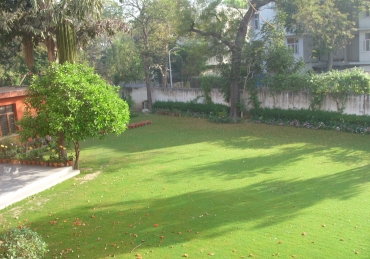Inheritance case and house
Question
A young man passed away. His successors are his wife, 3 sons and both parents. The deceased and his wife had purchased a home, worth £78,000 (currently valued at approximately £80,000) at some point during their marriage. As the deceased struggled to complete all the financial responsibilities alone, his wife offered to assist him, especially so that they could be free from interest-based mortgage repayments as soon as possible. He reluctantly accepted. The brother would take care of all the other financial matters whilst his wife paid the mortgage instalments from her earnings. The total she paid amounted to around £50,000.
Coincidentally, just before he passed away, he and his wife borrowed £27,000 from their parents to pay off the remaining mortgage. The girl borrowed £20,000 from her father & the deceased borrowed £7,000 from his father. This adds to £77,000. The additional £1000 was paid by the husband. The burial costs were approximately £2400, the wife has paid for this. No bequests were made. No other wealth was left behind by the husband, as mentioned, they were in debt and repaying mortgage.
The question is whether the property will be divided 50/50 between the deceased and his wife? Or will the £50,000 be the wife’s as it has been paid by her?
There was no conclusive intention on her part, whether it was a loan or a share in the house or otherwise, as they did not expect life to take the course that it did. The couple were simply aiming to buy a home for the futures of their three sons and be mortgage-free as quickly as possible. She is 100% convinced that had her husband known about his fatal illness, he would have made it clear that the home is for her and her three sons and that the sum she put in is hers.
The deceased’s parents also want answers regarding their inheritance.
بسم الله الرحمن الرحیم
Answer
As the husband would have made clear that “that the sum she put in is hers”, this indicates that there are two possibilities:
First, the wife’s contribution of £50,000 was by way of loan to the husband. In this scenario, the property belongs fully to the deceased husband, and will have to be distributed among all the heirs once the debts are subtracted and paid. The total debts would be £2400, £20,000, £7,000 and £50,000, totalling £79,400. Therefore, if the value of the property is £80,000, inheritance will take place in £600 and all the creditors will get their full monies back.
If this possibility is applied, the £600 will be distributed as follows:
Father – 12/72 (16.67%) – £100
Mother – 12/72 (16.67%) – £100
Wife – 9/72 (12.5%) – £75
Each son – 13/72 (18.06%) – £108.33
Second, the wife’s contribution of £50,000 and £20,000 was understood to be her share in the property. In this scenario, 70/78th (89.74%) of the property belongs to the wife and the remainder 8/78th (10.26%) of the house belongs to the husband. If the valuation of the property is £80,000, this means that £8205.13 is the equity of the husband in the property. There will be no inheritance because this amount is insufficient to cover the £2400 funeral costs and the £7000 debt. In this scenario, the burial costs will be paid first as burial costs are prioritised over the debts of people. Therefore, the deceased’s father will receive the remainder £5805.13 of his £7000 debt. The wife is not obliged to fund the burial costs (al-Fatāwā al-Hindiyyah, 1:161), however, if she decides to do so voluntarily, this is commendable.
The wife should now decide which of these two possibilities reflects their understanding, and if she finds it difficult to decide, err on the side of caution and apply the first possibility.
Allah knows best
Yusuf Shabbir
13 Rajab 1441 / 7 March 2020
Approved by: Mufti Shabbir Ahmad and Mufti Muhammad Tahir







